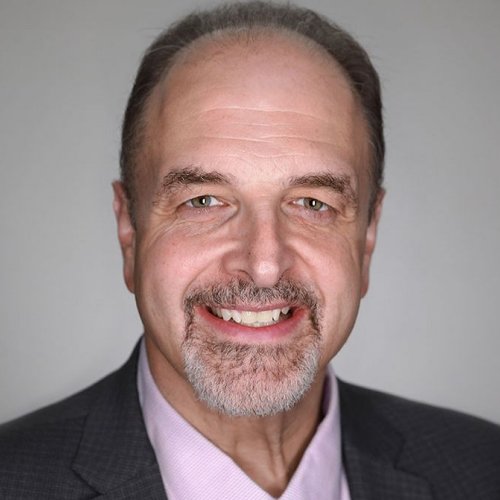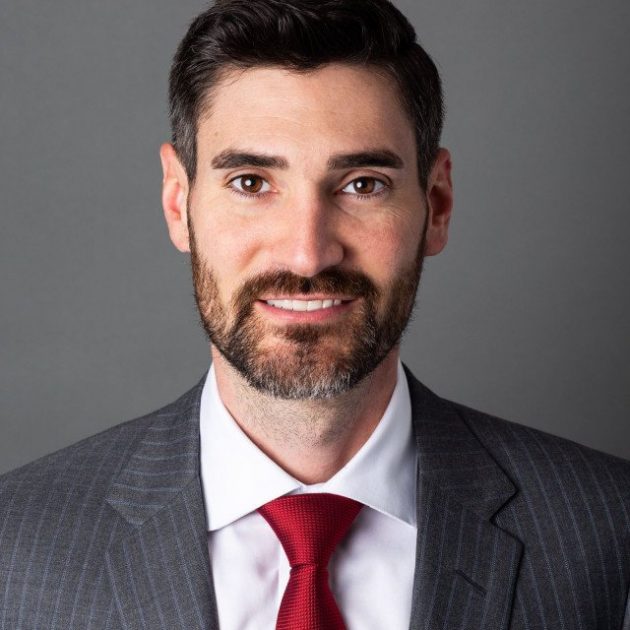A federal holiday is coming, and you’ve decided to plan your long-awaited weekend getaway. However, your manager calls and says they need you to work some extra hours because the holiday will be exceptionally busy.
Do you have to work overtime even if you’re not happy with the mandatory work?
In this blog post, we will help you:
- Find out what exactly mandatory overtime is,
- Learn whether mandatory overtime is legal,
- Explore your rights on overtime compensation,
- Get familiar with the pros and cons of overtime work,
- Find out what happens if you refuse mandatory overtime work, and
- Get tips for avoiding mandatory overtime as an employer and an employee.

What is mandatory overtime?
Mandatory overtime (or forced overtime) is the practice of mandating employees to work more than 40 hours in a standard workweek.
No matter how hard it is to believe, employers can request employees to work extra hours without giving any prior notice or asking for an employee’s approval.
However, according to the Fair Labor Standards Act (FLSA), they need to compensate their employees 1.5 times their regular wage for all overtime hours worked.
Mandatory overtime is usually required in times when there is a labor shortage, unexpected demand, or when a certain project is due for completion.
However, companies still need to follow FLSA regulations regarding overtime.
The FLSA rules also vary in terms of whether an employee is classified as:
- Exempt — those who don’t qualify for overtime compensation even if they work over 40 hours per week, such as executives and administrators, or
- Nonexempt — those who qualify to receive proper pay for all overtime hours.
When is mandatory overtime legal?
Under FLSA, mandatory overtime is considered legal provided that the employers meet the following conditions:
- The employer must compensate the employee 1.5 times for any hours exceeding 40 in a standard workweek,
- The employer must make sure that forcing overtime work will not in any way jeopardize the employee, and
- The employer may be limited to the number of mandatory hours they can request from employees who are members of a union.
We reached out to David Reischer, an Employment Attorney at LegalAdvice.com, to find out what he had to say on the subject:

“There is no federal law that outright prevents an employer from demanding mandatory overtime worked by their employees. There may, however, be federal laws that put caps on how many hours a person may work friending on the job.”
In addition, Michael Elkins, the founder of labor and employment law firm MLE Law, further explains this matter:

“Employees at will can be forced to work any schedule the employer deems required, which may include working over 40 hours in a given work week. As long as the employer is not forcing the overtime for some discriminatory purpose, this is perfectly legal.”
Furthermore, Travis Tatko, an employment law partner at Capell Barnett Matalon & Schoenfeld LLP, notes the following:

“There is no restriction on the number of working hours as long as they’re keeping with the presumption of at-will employment where an employee can leave his or her employment, or an employer may terminate an employee’s employment, for any or no reason, with certain exceptions (e.g., an employment contract for a defined duration; an improper dismissal based on discriminatory reasons or against public policy).”
Therefore, employers can legally demand their employees to work overtime as long as they do not discriminate, follow relevant laws, and provide overtime pay.
Is mandatory overtime legal in California?
Unlike other states (like Alabama, Arizona, or Florida) that follow federal overtime rules, California has a state overtime law. Employers in California have the right to impose mandatory overtime on condition that employees are compensated for all overtime hours.
An employment attorney at the Walker Law, Lorrie Walker, explains this further:

“In California an employer has the authority to dictate an employees’ schedule, including what hours the employee works and whether an employee works overtime. Furthermore, California law allows for employers to discipline employees who refuse to work mandatory overtime, including termination.”
Walker further states that, for certain industries, the California Industrial Welfare Commission has set forth rules and regulations called ‘Wage Orders’ that govern employee rights, including overtime.

“For example, Wage Order 13 related to employees in the agricultural industry, allows employers to require employees to work up to 72 hours per work week. However, any additional time beyond that must be voluntary. Other industries can only require overtime beyond 72 hours per work week in an emergency. Additionally, an employer in California cannot force an employee to work on the 7th consecutive day without first giving the employee a day of rest.“
All in all, California’s mandatory overtime laws suggest that all nonexempt employees should be paid 1.5 times their regular pay rate for all hours over 40 in a workweek. Moreover, they should be paid double their regular rate of pay if they work past 12 hours in a day or past 8 hours on the 7th day of the workweek.
💡Clockify Pro Tip
Learn your rights and responsibilities as an employee in California in our labor law guide.
Why is mandatory overtime (almost always) legal?
Generally, mandatory overtime is legal because there aren’t any laws that prohibit employers from requiring overtime.
In reality, the FLSA does not specify the number of hours an employee may be required to work in a single workweek. It only prescribes the rules for minimum wage for regular and overtime hours that employers should follow.
Mandatory overtime becomes illegal if your employer doesn’t pay the appropriate rate for all overtime worked.
However, certain exceptions mean mandatory overtime depends on the state and the nature of the job.
David Reischer further elaborates with the following:

“Federal and state laws will vary depending upon the specific type of work and safety concerns for requiring an employee to work too many hours and putting the player’s safety and that of others in harm’s way.”
For example, in 18 US states (such as Alaska, California, Illinois, Connecticut, or Massachusetts, for example), mandatory overtime for nurses is illegal and is protected by legislation. In line with that, employers cannot force them to work beyond their regular work schedule.
When is mandatory overtime not legal?
Mandatory overtime is not always considered legal. To learn more about such exceptions, we got in touch with Richard Dreitzer at Fennemore Craig, whose primary focus is in the area of labor and employment law. He says that employees may refuse working overtime without losing their jobs only in a few situations (if they do get penalized, they have the right to file a lawsuit).
Let’s explore each of these situations below.
If mandatory overtime puts you at risk of injury or violates safety standards, you’re protected from it
Richard Dreitzer says that mandatory overtime can be considered illegal in the following situation:

“If the overtime work may create a health or safety hazard. For example, requiring an employee to disinfect for COVID or remediate asbestos.”
We also connected with Douglas Bracken, an employment law attorney with Kane Russell Coleman Logan, with extensive experience on employment issues arising under state and federal law. He also confirmed the following:

“Mandatory overtime work may not be legal where it may create a safety hazard. If the overtime work poses a health or safety risk, it may violate the Occupational Safety and Health Act (OSHA) or another federal or state law.”
Douglas also gave an example of such situations:

“For obvious safety reasons, there are laws limiting the hours that truck drivers can work. Similarly, OSHA may provide some protection from long work hours and fatigue that could lead to injury. But, it still does not provide any specific limits on the number of hours an employee can work. Instead, OSHA provides fines for employers who create unsafe work conditions.”
As we can see, mandatory overtime must not pose a risk to the employee’s safety and health. Otherwise, it’s considered illegal.
So, if the conditions under which an employee works overtime increase the health and safety risks, the employer should not consider requiring overtime work.
After all, working long work hours has been found to make people less alert and more fatigued.
💡Clockify Pro Tip
Putting in long hours at work might have negative effects on your health. Read about the most common symptoms that show you’re being overworked:
If mandatory overtime violates the rules regarding overtime pay, you’re allowed to refuse it
As we previously mentioned, employees working overtime hours should be properly compensated (1.5 times their regular hourly wage) for all the extra hours they put in. This means that if employers try to violate the law regarding overtime pay in any way, they’re putting their company at risk for penalties.
Some common violations they might perform include:
- Misclassifying nonexempt employees as exempt. As we already know, nonexempt employees qualify for overtime compensation — so, when employers misclassify them, they do not receive the overtime pay they’re entitled to.
- Withdrawing overtime pay from employee’s salary due to poor performance. Employers are only allowed to refuse to pay overtime hours when an employee doesn’t show up at work for 2 or more days in a row. However, this doesn’t apply if the employee is sick, has requested time off, or is dealing with a disability.
- Not paying rest breaks to avoid overtime compensation. Breaks should be included in the employee’s salary, regardless of the number of overtime hours they work in a standard workweek.
If your employer fails to compensate you for your overtime work fairly, you can file a complaint with the Department of Labor’s Wage and Hour Division (WHD), or even file a civil lawsuit against them.
💡Clockify Pro Tip
In our guide, we cover everything you need to know about the financial aspect of working overtime:
If you have a family emergency, you can refuse to work extra hours
According to Richard Dreitzer, an employee can refuse to work overtime if they have a family emergency under the Family and Medical Leave Act (FMLA).
Family emergencies which entitle workers to take leave under the FMLA include:
- Adoption,
- Pregnancy,
- Foster care placement,
- Serious personal illness,
- Health or care of a family member, or
- Active military duty.
Therefore, as per US Department of labor, employees are allowed to take unpaid leave — such as medical leave — and have their job security guaranteed. This means that your employer cannot schedule you for overtime work or even fire you for refusing, since you’re on family/medical leave, and protected by law. Eligible employees are entitled to 12 weeks of unpaid leave per year and can get back to work after the end of that period without any repercussions.
Elkins also said:

“An employee that is on FMLA leave likely would not be faced with having to work overtime since the employee is out on leave.”
Moreover, employees can’t get fired for taking the FMLA leave. However, the employer can still fire an employee while on or returning from FMLA leave, due to several reasons — such as:
- Not applying for FMLA-approved leave,
- Poor employee performance prior to the FMLA leave,
- Employee misconduct or fraud, and
- Evidence that confirms that the employee would have been fired regardless of the FMLA leave.
Travis Tatko further elaborates on this:

“The FMLA can protect employees from having to work, but FMLA only applies in specific situations, including employers with 50 or more employees. And you need the underlying specific medical or family reason under FMLA to apply for the employee to take FMLA leave.”
To qualify for FMLA leave, an employee must:
- Work for a covered employer,
- Have worked at the company for at least 12 months,
- Have completed at least 1,250 working hours during the 12 months prior to the leave, and
- Only take a FMLA leave if they work for a company with 50 or more employees within 75 miles.
If you have a disability, you may also choose not to work overtime
Richard Dreitzer also says that employees can reject overtime work if they have a disability under the Americans With Disabilities Act (ADA).
ADA protects employees with disabilities from workplace discrimination and makes it illegal to fire them due to their disability, as long as they’re capable of performing the essential functions of the job.
Therefore, employers must make reasonable adjustments to the job or workplace that would allow them to perform the job regardless of their disability. This means modifying the employee’s scheduled mandatory overtime to reasonably accommodate their disability.
Travis Tatko also confirms that an employee with a disability preventing the employee from working overtime may be protected under the same act.

“However, some courts have ruled that working overtime may be an essential job function required for certain jobs as a business necessity, and in such cases, an employee that is medically unable to work overtime may still not be protected.”
To understand this situation better, Elkins mentioned that:

“Qualified individuals with a disability under the ADA still need to perform the essential functions of their job. Unless the employee has an accommodation that they do not have to work overtime, it is likely an employee covered under the ADA could still face discipline for refusing to work the hours designated by the employer.”
When working overtime is considered an essential job function and a business necessity, employers are not required to adjust or eliminate such standards under the ADA. This means that, even if the employee has a medical condition that could be adversely affected by working additional hours, they can still be terminated from their current position if they simply cannot perform the essential functions of the job.
Furthermore, employers might still be able to terminate someone’s employment under the following conditions:
- The reason for termination is unrelated to the employee’s disability,
- The employee does not meet the job requirements (such as poor performance), or
- The employee’s disability threatens the health and safety in the workplace.
If mandatory overtime breaches a union contract, you can reject it
The FLSA overtime law may also not apply to employees hired under a collective bargaining agreement (CBA) — an agreement between employers and representatives of their employees (e.g., unions) — which regulates employment matters, such as:
- Wages,
- Hours worked,
- Overtime, and
- Working conditions.
Richard Dreitzer further explains:

“If the overtime work violates a contract (i.e., if the contract doesn’t specify that overtime is permitted), the employee can refuse to work it and can’t be fired for that refusal. For example, a union contract (or a CBA) can specify the number of hours an employee must work in a week.”
CBA employees are limited regarding the number of hours worked, regardless of the FLSA requirements. Therefore, the employer must follow the CBA provisions. In case they violate the contract’s terms, they might face a civil lawsuit.
Tatko also adds this:

“It all depends on the CBA. Unions can negotiate terms of overtime and restrict mandatory overtime. Employment agreements can protect employees, and a CBA falls into that zone.“
Moreover, union employees are protected by the National Labor Relations Act (NLRA). As such, they can help each other by:
- Sharing information,
- Organizing petitions, and
- Improving wages and working conditions.
Bracken adds the following:

“Through a CBA, a union is able to bargain on behalf of employees for working conditions that are better than provided by law. As a result, a CBA may provide greater protection than the FLSA by limiting the number of hours or overtime covered employees can work. Or a CBA may allow some employees the right to refuse mandatory overtime or to be offered overtime work first — usually based on seniority.”
Elkins also agrees with Tatko regarding union agreements:

“Employees subject to a collective bargaining agreement (CBA) will need to look at the terms of the CBA. Every CBA is different but most of them govern discipline and hours of work.”
If mandatory overtime discriminates against employees, it’s considered illegal
An employer can choose to fire at-will employees for refusing to work overtime — as long as the reason for doing so is legal.
However, if they fire the employee based on discrimination or retaliation, it’s considered illegal. Here’s what Michael Elkins says about this:

“If an employer is forcing overtime as some sort of adverse action against an employee based on the fact that the employee is part of a protected class, and is not doing so to employees outside the protected class, then there may be an issue.”
The federal Equal Employment Opportunity (EEO) laws protect members of protected classes (groups of people who are protected against employment discrimination based on their status such as age, gender, pregnancy, race, religion, etc.). Such discrimination includes any unfavorable action against an employee for their membership in a protected class (discrimination in layoffs, terminating, job assignments, raises, religious beliefs, promotions, etc.)
So, for example, if an employee works under collective bargaining agreement or a union contract, it may be discriminatory to terminate them for refusing to work mandatory overtime. Furthermore, an employee can also refuse to work overtime during religious holidays. In such cases, the employer must make sure to prevent religious discrimination by reasonably accommodating the employee’s time off request. Therefore, the employee can file a claim with an employment or wage and hour lawyer.
💡Clockify Pro Tip
Did you know that there are 11 federally-recognized paid holidays each year? Check if you’re entitled to these paid holidays below:
| When is mandatory overtime not legal | Explanation |
|---|---|
If mandatory overtime puts you at risk of injury or violates safety standards | The employer should not require overtime work, if the conditions under which an employee works overtime create health and safety risks. |
| If mandatory overtime violates the rules regarding overtime pay | Employees working overtime should receive 1.5 times their regular hourly pay for all overtime hours. |
If you have a family emergency protected by the Family and Medical Leave Act (FMLA) | Employees are entitled to 12 weeks of unpaid leave to deal with family emergencies (such as adoption, pregnancy, serious personal illness, etc.). |
If you have a disability protected by the Americans With Disabilities Act (ADA) | Employers must reasonably accommodate the working conditions so that employees can work flawlessly despite their disability (e.g. changes to the employee’s mandatory overtime schedule). |
| If you’re employed under a Collective Bargaining Agreement (CBA) | The contract should clearly specify the limit on the number of working hours per week and whether mandatory overtime is permitted. |
If mandatory overtime discriminates against members of a protected class | The employer should not mandate overtime as an adverse action against an employee based on their status (such as age, gender, pregnancy, race, religion, etc.) |
Can you be forced to work overtime?
The short answer is YES. Under the FLSA, your employer can request that you put in extra hours and can even create your work schedule without prior approval.To learn more about forced overtime, we got in touch with Ben Michael, an attorney at Michael & Associates. Here’s what he says about the legality of this matter:

“Yes, mandatory overtime is legal. However, the law specifically requires employers to offer overtime pay to workers who are forced to work overtime, but it allows for the practice, including allowing employers to fire employees who won’t work mandated overtime.”
Michael Elkins also joined Ben Michael in commenting this subject:

“An employee can refuse to work overtime, and the employer is within its rights to discipline the employee for refusing to work the required schedule.”
Since the FLSA does not regulate the number of workweek hours, your employer is allowed to decide how many hours you’ll be working. For example, you can be mandated to work 70 hours per week, and this requirement does not violate any federal or state law (except in California). What’s more, they have the right to penalize you if you reject overtime work.
In addition, state labor laws differ to some extent because some states have added restrictions.
For example, employees in Colorado get 1.5 times their regular pay rate if they work more than 12 hours per day.
On the other hand, in Nevada, if an employee makes less than 1.5 times the minimum hourly wage, they must be paid for all overtime worked over 8 hours in a workday.
However, if an employee earns more than 1.5 times the minimum hourly wage, they should be compensated for all the hours worked beyond 40 hours a week (unless they have agreed to work 4 10-hour shifts).
💡Clockify Pro Tip
An unhealthy work environment affects employees in a number of ways — which is why it’s important to recognize the signs before it takes a toll on your health:
What are the advantages and disadvantages of forced overtime?
Working overtime can be financially beneficial — but is it worth it?
Let’s uncover the benefits and risks of working overtime to help you find out whether you should work more hours.
Pros of working overtime
There are certain situations where working overtime can prove to be beneficial for employees. Mandatory overtime can provide some positive perks for employees, including:
- An opportunity to earn extra money. Obviously, working long hours can often mean getting paid more (1.5 times or double your pay rate). So, if you’re thinking about making some extra cash, overtime seems like a viable option.
- A chance to build better relationships with coworkers. Staying late at work can help you spend more time with other colleagues who also do overtime. By taking on extra projects, you can collaborate with different team members and share ideas and skills that will help in achieving the company quota. Moreover, when your colleague’s on holiday, and you need to cover their duties, they will be happy that they have a reliable coworker.
- Ability to gain more experience and skills. By working more hours, you’re able to get more experience and improve in your job. The more you work, the more you learn new skills necessary to perform the job. There’s always a better chance to learn something new if you stay outside your regular hours.
Cons of working overtime
Alongside several advantages, there are also many disadvantages to taking on overtime. Here are some to take in consideration.
- Your mental and physical health could be at risk. Your health can suffer as a result of taking on more work hours. For example, you might find yourself getting a lot more tired or sick. Sitting in front of a computer screen for too long can lead to mental health issues like burnout, stress and fatigue, and increase physical health issues (back pain, dry and itchy eyes, or headaches).
- Your personal life can suffer. Working excessive hours means less time for personal matters. It can hurt your relationships with friends and family because you’re not seeing them often. Moreover, staying late can affect your work-life balance, which means less sleep, less socializing, and less time to do something relaxing.
- Your job satisfaction could be reduced. If you’re satisfied with your job you may be willing to work long hours, but this can negatively affect your job satisfaction levels over time. When you’re having too much of anything, you may lose passion and enthusiasm. As a result, you end up being less productive and more frustrated.
💡Clockify Pro Tip
Sometimes, working overtime may be essential, but it does more harm than good. Learn what you need to do to leave the office on time.
How to avoid mandatory overtime if you’re an employer
Even though mandatory overtime comes with certain benefits for employers, it can negatively impact employers in many different ways, such as dealing with higher expenses due to overtime rates. That’s why it’s important to consider implementing better alternatives to mandatory overtime.
Here are a few tips to help you avoid forcing your employees to stay late at work.
Tip #1: Hire part-time or temporary employees
Every business experiences staff shortages sooner or later, and it most frequently happens due to:
- Employee’s sickness,
- Well-deserved vacations,
- An increase in customer demand during peak seasons, or
- A special project that needs to be handled in a timely manner.
To avoid employee burnout due to excessive overtime in busy periods, it’s best to hire temporary or part-time staff to handle the extra work. In fact, hiring temporary or part-time workers might be a better option than paying overtime.
Mandatory overtime needs to be paid at 1.5 times the regular rate, whereas temporary or seasonal employees are exempt from the FLSA minimum wage and overtime pay provisions. Furthermore, seasonal employees aren’t entitled to company benefits, such as paid time off, holidays, or healthcare. So, when you compare the costs, you’ll realize that you’re actually saving more money.
Tip #2: Post available shifts for overtime hours
Another way to avoid mandating overtime is posting working overtime shifts and giving employees the freedom to choose when to undertake additional hours. This opportunity allows them to volunteer for overtime instead of being obligated to work additional hours.
Some employees may be willing to stay overtime because they want to meet the project deadline or simply want more money on their paychecks.
Regardless of the reason, the opportunity to decide for themselves contributes to a happier workplace environment.
As a result, employees will be more likely to stay in the company and be grateful for the chance to earn extra pay.
Tip #3: Limit in-office distractions
We all experience workplace distractions at least once a day, and sometimes probably more than once. While sometimes they can be a good thing, interruptions such as unplanned meetings or constant emails can derail an employee’s productivity and focus, making it harder to get the job done on time. This can increase the time needed to complete their tasks — and as a result, you may need to require people to work overtime.
However, there are a few things you can do to eliminate this problem. For example, you can move your employees’ desks to a quieter place, or rent a closed office space instead of an open space.
Also, avoid interrupting an employee’s workflow with unplanned meetings — instead, share meeting schedules in advance.
You can tell your employees that they don’t need to reply to emails instantly and that they can set a fixed time for checking and replying to emails.
💡Clockify Pro Tip
Do you constantly fall short on your tasks because you can’t overcome distractions? Learn how to stay focused if your mind is constantly drifting away.
Tip #4: Reevaluate employee’s workload
When employees are overwhelmed with work, they might need to stay long hours to finish the job. However, constant overtime can be toxic, as it could often come at the cost of an employee’s health. Overworked employees handle more tasks and responsibilities than their job role allows, making them more prone to mental exhaustion, burnout, and workplace accidents.
For example, if they’re working on several different projects, employees may find it difficult to dedicate the right amount of time and attention to each project.
To avoid such incidents, employers should prioritize the most urgent tasks and delegate assignments between coworkers accordingly. This will help them avoid scheduling frequent overtime shifts.
Tip #5: Talk with your employees in advance
Clear communication gives employees the information they need to contribute to the company’s success.
So, when overtime shifts are necessary, it’s best to set up a meeting with employees and explain that scheduling overtime was not an easy decision to make.
Tell them how their work is critical in handling the increased demand during busy times or when a special project is coming up. That way, you’re more likely to attract empathy, and your employees will be more willing to help you get through the peak season.
Instead of explicitly mandating overtime work, create a culture of open communication where everyone can share how they feel about long hours. If your employees show signs of burnout, make sure to offer rewards that work against burnout, such as extra break time or bonus paid time off (PTO) after the busy season is over.
💡Clockify Pro Tip
Struggling to keep on top of your productivity due to an overwhelming workload? Here’s how to use the 1-3-5 rule to be more productive at work.
How to avoid mandatory overtime if you’re an employee
Even though there is no law that specifically prohibits mandatory overtime, there are still some things that you can do before taking on overtime work.
Tip #1: Talk to your coworkers
It’s a good idea to talk to your coworkers to find out whether they’re experiencing the same feelings and effects of forced overtime. If that’s the case, you can bring out the issue to your employer as a group.
Open communication is a key factor in creating a company culture where employees feel encouraged to honestly discuss all workplace matters.Employee group discussions are always more effective in the fight to prevent themselves from overworking. Sometimes, employers do not realize that excessive overtime can decrease their employees’ efficiency and productivity, and increase the risk of injury and health issues.
Tip #2: Check your employment contract
This tip is only applicable to specific categories of workers.
For example, if you’re employed under a collective bargaining agreement, make sure to reach out to your business agent to find out whether there is an overtime clause in your contract. Different collective bargaining agreements come with different clauses, so it’s always best to be on the safe side.
For example, some contracts state that employees are usually prohibited from mandatory overtime, or they might have set a limit on the number of overtime hours an employee can work during a given week. Furthermore, the Americans with Disabilities Act states that all people with disabilities have limits on overtime. Therefore, they should be reasonably accommodated in accordance with their medical condition.
Tip #3: Go over your company’s policy
Another thing you should do as a nonexempt employee is read your company’s policy on mandatory overtime. Taking a close look at your company’s policy will help you understand whether you may sometimes be asked to work overtime.
Such situations may include:
- Completing an important project,
- Meeting tight deadlines, or
- Helping other team members.
The company’s policy will also help you figure out:
- How much you’ll be compensated for all the hours worked in addition to the regularly-scheduled working hours,
- Whether your supervisor will give you a reasonable notice for the requested overtime period,
- Whether you have the right to reject overtime if you have a valid reason, and
- What disciplinary action will be carried out if you refuse to work overtime (e.g termination).
Knowing every aspect of your employment contract will help you recognize whether your employer abuses the overtime regulations.
Furthermore, some companies have policies against working more than 40 hours per week. In such cases the employer should not force overtime.
Tip #4: Examine the federal and state laws and limits
As you already know, overtime regulations are predetermined by the FLSA. However, certain states have additional overtime regulations.
Some states, including Alaska, California, or Massachusetts limit how many hours employees of certain occupations can work. For example, employees who work in occupations that may be harmful to their safety must have restrictions on the number of hours that they can work.
This group includes:
- Pilots,
- Truckers,
- Nuclear power plant workers,
- Railroad workers, and
- Marine personnel.
That’s why it’s important to get familiar with the state labor laws to see how they might affect your occupation. Understanding legal overtime requirements is also crucial to getting paid the exact overtime rate in your state (1.5 times your regular pay or double if you live in California, for example). Furthermore, since not every state has specific overtime laws, employers should follow both federal and state laws.
Tip #5: Negotiate overtime terms and conditions ahead of time
After you’ve got familiar with state laws regarding overtime regulations, the best time to negotiate the overtime clause (terms and conditions) of your contract would be during the hiring process.
For example, you can ask your employer to provide you with additional information about:
- The amount of pay you’ll receive for mandatory overtime,
- The notice period you’ll get before starting mandatory overtime,
- The compensation for childcare, commuting, or other costs resulting from mandatory overtime,
- How much compensatory time you’re entitled to (the number of days off given instead of overtime pay),
- Who approves overtime, and
- How to discuss overtime with your manager.
After everything is put into writing, you should know how to abide by the overtime caps or restrictions.
Track overtime hours with Clockify by CAKE.com
Keeping track of employees’ hours, including overtime, is important for any business.
This habit helps you get a better idea of how many hours your employees put in a given day, week, or month.
Moreover, time tracking allows you to stay on top of state labor laws and regulations and provide fair compensation to each employee.
One of the most efficient ways to do so is by using an employee overtime tracker like Clockify by CAKE.com.
As a time tracking solution, Clockify can help you monitor:
- When each employee starts and finishes their work shift,
- How many hours each employee works per day, and
- Who works overtime, and how many hours.

As we already mentioned, employees should be appropriately compensated for all hours worked. When each employee tracks the hours they spend on projects, you will be able to calculate all overtime hours and pay them accordingly.
Therefore, Clockify can help you stay on the right side of overtime wage rules.
Moreover, having real-time data allows you to keep overtime costs under control. By having detailed records, you’ll have a better understanding of what employee or project is accumulating the most overtime hours.
💡Clockify Pro Tip
You can’t always see how much overtime your employees are putting in without tracking it.
FAQ about mandatory overtime
Below we answer some of the most common questions regarding mandatory overtime.
Should employees oblige or not? Let’s find out.
Is mandatory overtime ethical?
According to the FLSA rules, currently, there is no cap on the number of overtime hours an employee can work during a given week.
However, California is an exception to this rule, where employees can’t be disciplined or fired for refusing to work more than 72 hours in a week. On the other hand, employees in Maine mustn’t work “more than 80 hours of overtime in any consecutive 2-week period”.
But, requiring employees to work more than they can handle is generally frowned upon because these additional work hours can significantly impact an employee’s health and well-being.
In today’s hiring marketplace, employees value the balance between family and career, so most aren’t thrilled by the idea of working more hours than the required minimum.
Should I say no to overtime?
Employers can penalize employees for refusing to work overtime if there is no clear evidence that doing so will pose a threat to their safety and health.
So, as long as you’re paid 1.5 times your regular rate, you cannot say NO to overtime work. However, if you cannot work overtime hours, it’s best to state your reasons to your supervisor or manager (e.g. family and child care duties, or being a union member).
How much notice is required for mandatory overtime?
There are no laws that specify how long prior to the overtime schedule employees need to be notified about it.
In fact, employers can require employees to work more than 40 hours without any prior notice. However, certain professions and industries have restrictions on the number of hours an employee can work. For example, trucking, airlines, mining, and railroad employees aren’t allowed to work additional hours because doing so might pose a risk to their own safety.
Keep overtime costs under control with Clockify
To maintain your company’s financial health and operational efficiency, you should use team time tracking software that keeps overtime costs under control.
Introducing Clockify by CAKE.com — software that lets you use flexible scheduling to predict periods of high demand that may require additional resources.
So, how does it work?
Here are the steps to create better schedules:
- Install Clockify,
- Set daily working capacity for each team member, and
- See who can take on more tasks and when.

The Schedule feature in Clockify benefits you in many ways, including that you:
- Gain real-time insight into what everyone’s up to,
- Cut costs by not assigning additional work if you so choose,
- Visualize current assignments on a neatly packed timeline.
But that’s just part of Clockify’s powerful capabilities.
You can even set up real-time alerts when employees are nearing their regular hours limit. As a result, you can adjust their schedules or redistribute workloads in a way that does justice to your company’s bottom line and your employees’ health.

Yes, you can set up as many alerts as you like. You just need to define the criteria under which they are sent. For example, if your project reaches 90% of its completion rate, you can opt to inform company admins or managers.
Last but not least, the Assignments report lets you see if anyone exceeded their marks despite your best efforts. In the case below, Project A surpassed its scheduled work hours:

Ready to effectively manage mandatory overtime?
Create a balanced work environment for employees, optimize workforce management, and control overtime costs with a piece of tried-and-tested project tracking software.


